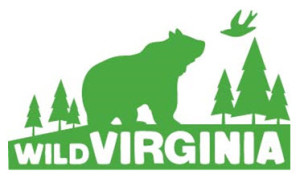The Forest Service has rejected the proposed Atlantic Coast Pipeline route through the Monongahela and George Washington National Forests. The Forest Service specifically determined that the proposed route does not meet minimum requirements of initial screening criteria for special use of National Forest System lands in West Virginia and Virginia. The decision was announced in a January 19 letter to Leslie Hartz, VP for pipeline construction for Dominion Transmission, Inc.
The following is a news release by Wild Virginia, a member of the Dominion Pipeline Monitoring Coalition
Forest Service Tells Dominion That Atlantic Coast Pipeline Must Be Rerouted
The United States Forest Service in a letter to Atlantic Coast Pipeline, LLC, has told ACP LLC that the Atlantic Coast Pipeline must be “routed around areas where Cowknob Salamander is found.” The letter, dated January 19 and signed by Regional Foresters Kathleen Atkinson and Tony Tooke, states that the Forest Service “we have determined that the proposed route does not meet minimum requirements of initial screening criteria.”
“Such a reroute would have to avoid Shenandoah Mountain,” said Ernie Reed, Wild Virginia President, “since even the proposed drilling through Shenandoah Mountain does not fully avoid areas where salamanders are present.”
The letter also specifies that Dominion has failed to “develop and evaluate system and route alternatives that avoid Cheat Mountain and Back Allegheny Mountain in the Monongehela National Forest and Shenandoah Mountain on the George Washington National Forest.” That request was made originally made almost 6 months ago, in a July 30 letter to the Federal Energy Regulatory Commission from Tom Speaks, then Forest Supervisor of the George Washington National Forest.
Today’s letter states that “Alternatives must avoid Cheat Mountain and Cow Knob salamanders and their habitats, the West Virginia Flying squirrel and its habitat, and spruce ecosystem restoration areas.” The forest service notes that these are “highly sensitive resources…of such irreplaceable character that minimization and compensation measures may not be adequate or appropriate and should be avoided.”
“Dominion has failed since day #1 to address what is perhaps its greatest obstacle, building the Atlantic Coast Pipeline through sensitive national forest lands in Virginia and West Virginia,” added Reed. “This letter demonstrates that the strong position taken by the George Washington and Monongehela National Forests in protecting our natural legacy is supported by the Regional Office. It’s significance cannot be overstated.”
The earlier 57-page document pointed out numerous deficiencies, errors, and inconsistencies in documents submitted to FERC by Atlantic Coast Pipeline, LLC. It also required that “ACP’s discussion should clearly articulate why the project cannot reasonably be accommodated off National Forest Service (NSF) lands.” It was followed by a November 5 letter from Clyde Thompson, the Supervisor of the Monongehela National Forest, that Dominion “misrepresented…requirements for protocols and qualifications for field personnel” who carried out soil surveys. The supervisor concluded that “the Forest Service cannot use these surveys to evaluate project effects on National Forest Service Lands” and recommended that the Federal Energy Regulatory Commission “not utilize data conducted to date.”
“The National Forest is a roadblock that Dominion may not be able to surmount,” Reed concluded.

Wild Virginia
P.O. Box 1065
Charlottesville, VA 22902
434-971-1553
www.wildvirginia.org
